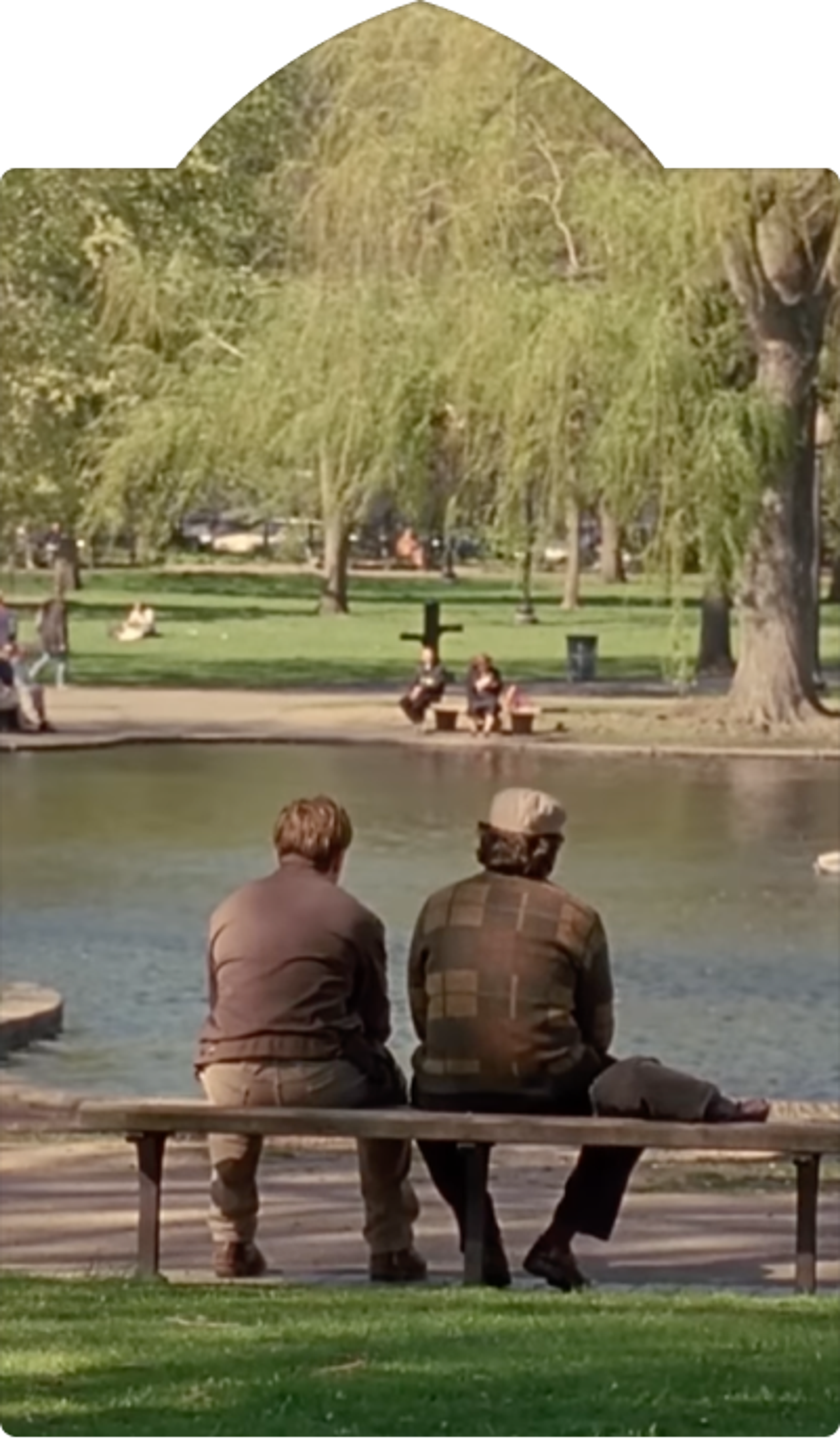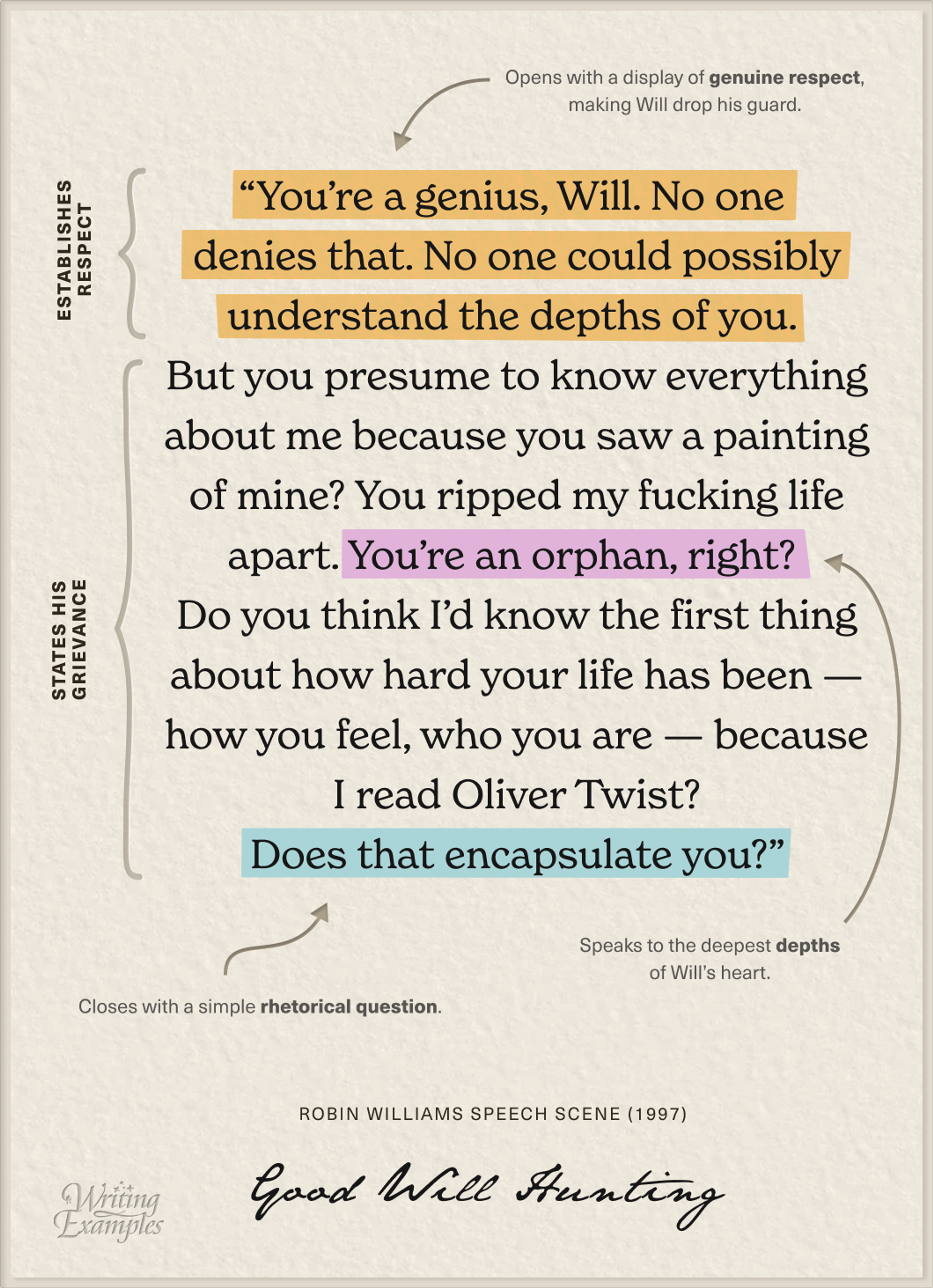HOW TO
Change Someone'sMind
By
David Perell


his isn’t just a lesson in writing. It’s a lesson in how to change somebody’s mind. When you’re trying to critique someone, it can be tempting to go all-in and launch an attack to hammer your point home, but that’s exactly the opposite of what happens here.
Robin Williams' character doesn’t use a single assertion in his critique. Rhetorical questions are all he needs to speak into Will’s heart.
He begins by establishing respect. His words are warm but authoritative, and he isn’t blowing smoke when he calls Will a genius — he means it. This authenticity drops Will’s guard, which gives Robin Williams the oxygen to make a firmer point.
These rhetorical questions honor Will’s intelligence (and turn it against him). Each question — the office painting, his status as an orphan, and a nod to Oliver Twist — knocks at the doorway of Will’s inner world. The first question calls upon the intensity of their last shared experience, the second cuts to a deep wound, the third challenges Will’s identity, and the fourth delivers the knockout: “Does that encapsulate you?”
The structure is simple: start with respect, then ask a few pointed questions. You don’t need many words. It works in Good Will Hunting because it works in life.
Want to go deeper?
- 01
Video
Read More
Write like the Greats
New Writing Examples, right in your inbox.
“Beautiful, playful, and high-quality. Kudos.”
Clayton
from Missouri, USA



